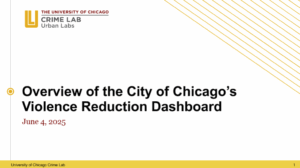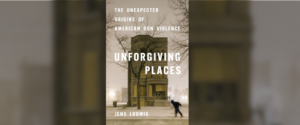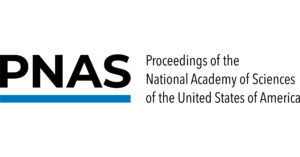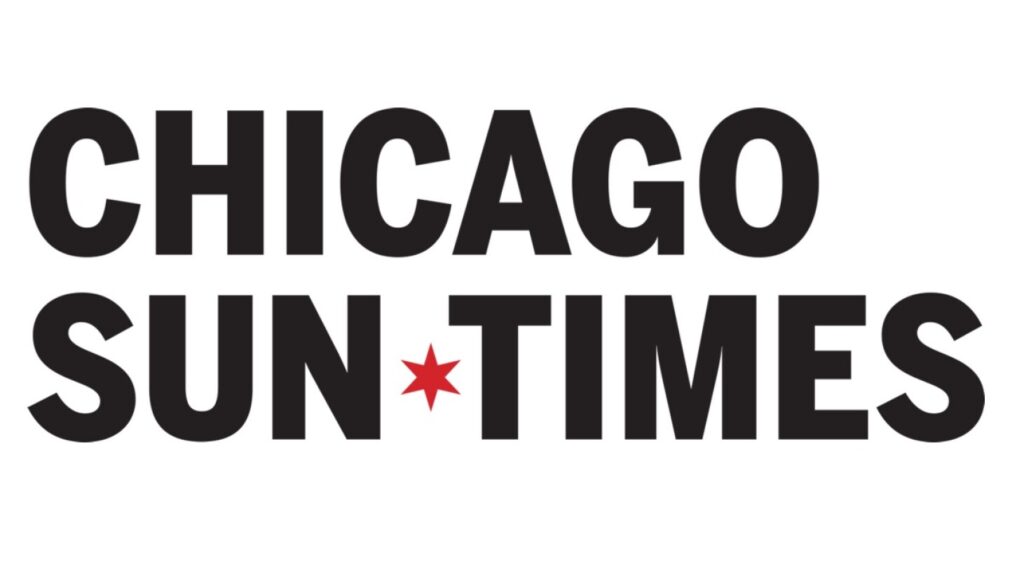Oct 2023
Predicting and Preventing Gun Violence: An Experimental Evaluation of READI Chicago – Final Paper
The findings from the READI study are the focus of this academic paper.
Gun violence is the most pressing public safety problem in American cities. We report results from a randomized controlled trial (N = 2, 456) of a community-researcher partnership called the Rapid Employment and Development Initiative (READI) Chicago. The program offered an 18-month job alongside cognitive behavioral therapy and other social support. Both algorithmic and human referral methods identified men with strikingly high scope for gun violence reduction: for every 100 people in the control group, there were 11 shooting and homicide victimizations during the 20-month outcome period. Fifty-five percent of the treatment group started programming, comparable to take-up rates in programs for people facing far lower mortality risk. After 20 months, there is no statistically significant change in an index combining three measures of serious violence, the study’s primary outcome. Yet there are signs that this program model has promise. One of the three measures, shooting and homicide arrests, declines 65 percent (p = 0.13 after multiple testing adjustment). Because shootings are so costly, READI generates estimated social savings between $182,000 and $916,000 per participant (p = 0.03), implying a benefit-cost ratio between 4:1 and 18:1. Moreover, participants referred by outreach workers—a pre-specified subgroup—show enormous declines in both arrests and victimizations for shootings and homicides (79 and 43 percent, respectively) that remain statistically significant even after multiple testing adjustments. These declines are concentrated among outreach referrals with higher predicted risk, suggesting that human and algorithmic targeting may work better together.

Webinar: Overview of the City of Chicago’s Violence Reduction Dashboard
The Crime Lab hosted a webinar that explored the City of Chicago’s Violence Reduction Dashboard—a publicly available tool launched to support efforts to reduce gun violence through transparent, real-time data.

Unforgiving Places: The Unexpected Origins of American Gun Violence
Crime Lab Pritzker Director Jens Ludwig authored a book that argues the lack of progress in reducing gun violence ultimately stems from our having misunderstood the nature of the problem, and that behavioral science gives us a new way to understand – and solve – gun violence in America.

Local Gun Violence Dashboards
Chicago’s Violence Reduction Dashboard, launched by the Crime Lab in 2021, is featured in a toolkit created by Everytown for Gun Safety Support Fund as a part of its Gun Violence Data Fellowship.

Valuing the benefits of reducing firearm violence in the United States
This paper estimates the monetized value of the impact of reducing firearm violence and how that value is distributed across the population.
Latest Updates
Kelly Leonard: How improv can help police do their job
Kelly Leonard joins WGN’s John Williams to discuss The Second City’s partnership with the Crime Lab’s Policing Leadership Academy that’s using improv to help officers improve their communication skills.

Novel approaches can chip away at gun violence, and make a big difference
In an op-ed for the Chicago Sun-Times, Crime Lab Pritzker Director Jens Ludwig argues that when it comes to gun violence, we’ve been focused on the wrong solutions – a key insight from his new book, “Unforgiving Places: The Unexpected Origins of American Gun Violence.”

New book challenges conventional wisdom on Chicago shootings
Crime Lab Pritzker Director Jens Ludwig joins WGN’s Mike Lowe for an interview to discuss his new book “Unforgiving Places: The Unexpected Origins of American Gun Violence,” and how the book challenges our conventional wisdom about why shootings occur and how we can make progress on gun violence.

